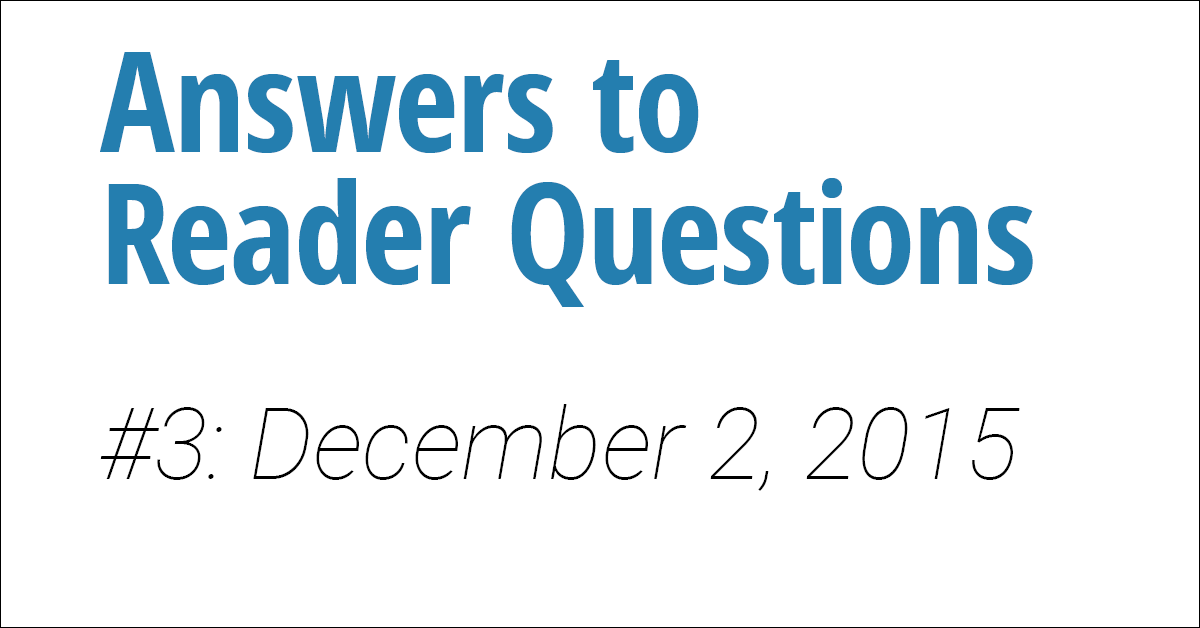Here’s the third round of reader questions. This month we’ll be covering coffee, protein timing, and intermittent fasting.
As a quick reminder, I’m always happy to take reader questions. Regardless of whether I answer your question publically for the community, I always reply in person as well. I fully encourage asking questions as well because it gives me an idea of what people are curious about! You can submit a question here.
Now, onto this month’s questions!
Question #1, on Coffee
I am wondering if coffee is good or bad for climbers. I generally don’t drink coffee very often, and because of that if I have just a little it can boost my productivity at work and perhaps makes me work harder during my training. But is coffee good in general during training? During recovery? -Simon
Simon specifically mentioned coffee, but the question is really about caffeine because that is essentially the only active compound in coffee. There are also minor amounts of chlorogenic acids (a potential fat-burner), but they’re present in far too limited amounts to have any acute effect.
Caffeine is possibly the most potent ergogenic aid available—or at least the most well-studied—with a large number of positive effects on a wide range of exercise types. In the case of climbing (an intermittent, high-intensity sport), caffeine can increase overall endurance (allowing you to climb for longer in a day), increase focus and accuracy, and potentially improve strength and power. In short, it can provide a significant boost.
It should be noted, however, that most of these effects have only been observed in athletes who are considered “trained”—untrained (or novice) athletes do not experience any boost from caffeine. The hypothesis is that untrained athletes perform at widely fluctuating levels that are unlikely to be enhanced; trained athletes, on the other hand, perform at or near the same level consistently, and thus can experience a boost from caffeine.
A second note is that while coffee is certainly one of the easiest (and most normal) ways to get caffeine, it’s not necessarily the best way. Some studies have suggested that the caffeine found in coffee (hydrous caffeine) is a less potent performance enhancer than the anhydrous (dry) caffeine found in pills and supplements (though consuming caffeine pills alongside coffee does not dampen the effect, as might be suspected).
Finally, there is some potential for habituation with caffeine and a resultant decrease in its benefits. The research here is far from clear, though, and suggests that it may be a personal issue that should be approached on a case-by-case basis. In regards to this, the most important questions to ask yourself is how caffeine affects you. Do you feel like you need caffeine just to feel alive again? Do you feel best when you only use caffeine at specific times? Can you drink caffeine routinely and still get a perk from it? Whatever the answer is, use caffeine in a way such that you can feel its benefits.
As for recovery, there is some evidence that caffeine can increase glycogen resynthesis, thus improving recovery rate. Glycogen synthesis is only really an impairment when recovery time is extremely limited, however, and as long as you have over 12 hours to refeed you shouldn’t need a boost. So save the caffeine for before the workout!
Question #2, on Protein Timing
I was wondering whether drinking a protein shake after a workout is an effective means of building muscle. I just read (quickly) through the 3-part protein series and didn’t see anything about it (may have missed it). I was just wondering whether doing both (i.e. consuming 20 grams every 3 hours AND having a protein shake post-workout) or timing a protein meal for after a workout would be better or worse, of if there is any info regarding this. -Pat
I may have briefly covered this in the protein series, but it’s worth refreshing. According to a recent meta-analysis on this exact topic, the anabolic window either does not exist or could last as long as 4-6 hours. To wit, the authors of the meta-analysis found no correlation between protein timing and muscle hypertrophy—only between total protein intake and hypertrophy (with a suggestion that the amount necessary to maximize muscle protein synthesis is around 1.6 grams per kilogram per day, which lands most people in the range of 100 – 140 grams of protein).
This meta-analysis didn’t look at the totality of protein timing, only whether it was important to time your protein either before and after a workout. To this end, the answer was “no”, but timing throughout the day is still important due to the muscles’ limited ability to absorb excess amino acids. When the muscle is “full”, it won’t absorb more, and any spare amino acids left in the blood will be put to other uses or excreted. Thus, you still need regular protein “infusions” to maximize potential (every three hours, roughly).
Another question to ponder, though, is “what’s the harm?” There may be no benefit to timing a meal after a workout, but there’s definitely no downside. And considering how many people get hangry after a few solid hours of climbing or training, eating afterwards is probably likely anyway.
In the end, I try to time my meals so that they coincide with my estimated workout completion time—not because I want to get the most benefit out of my workout, but because it’s convenient and I like to eat after I train. If that works for your schedule and preferences, I’d recommend you do the same. But the bottom line is that if you cannot eat right afterwards, it’s not the end of the world—as long as you can eat sometime after your workout, you’ll be good!
Question #3, on Intermittent Fasting
What are your thoughts on intermittent fasting for climbers? I’ve been experimenting with the 5/2 approach (five days normal eating, two days restricted to 600 calories) and the warrior diet approach (restricting the eating window to the evening). I’m finding this approach useful in losing excess fat in a (for me) sustainable way, but I’m wondering if or how much this compromises my training efficacy. I find now that I’m acclimated to fasting I can train hard while fasted. -Brian
I’m a little biased on this question because I find intermittent fasting (IF) the easiest way to restrict my dietary intake—not eating for most of the day just doesn’t bother me if I know I’ll get to eat normal amounts of tasty food later in the day. That being said, there’s nothing magical about intermittent fasting for weight loss or for climbers. If it works for you, it works for you, otherwise try something different.
That wasn’t the question, though—I just wanted to quickly address the idea of dieting for fat loss and what “works” (answer: they pretty much all do, so long as you can stick to the plan). Rather, the question was about IF and training efficacy, and the answer requires slightly more explanation.
The first thing to know (and come to terms with) is that there isn’t a single way to diet that will not result in some loss of training capacity or efficacy. Fat loss is maximized in a situation where there are inadequate calories to power the body and exercise, and as a result the energy stored in the fat is used to bolster the supply. This scenario can affect your climbing in a few ways:
- When you consume fewer calories, you must typically also consume fewer carbohydrates (unless you eat a high-fat diet and can afford to cut only fat calories out). By consuming fewer carbs, you shrink the size of your muscle glycogen reserves and downgrade your ability to persist during bouts of high-intensity exercise.
- Burning higher degrees of fat implies an increased reliance on fat for energy. Fat is less capable of powering anaerobic exercise as it can only resynthesize ATP at around 25% the rate as anaerobic glycolysis.
- Consuming fewer calories shifts our metabolism more towards the catabolic side and inhibits many anabolic processes like muscle growth and adaptation.
Now, as Brian mentioned, it is possible to become acclimated to training in a caloric deficit and cease to notice the ill effects—but it’s important to keep in mind that this doesn’t mean they’ve gone away. Rather, your slightly lessened ability to train has become your new “normal”, and thus you no longer notice any deficit in performance. As soon as you return to a higher caloric intake, you’ll be amazed at the energy you have!
So it’s inevitable that you’ll hinder your training somewhat, but there are still better ways to diet (including IF) to prevent too much performance loss:
First, keep your carbohydrate intake as high as possible, and be sure to consume carbohydrates directly after exercise and in the few hours following. This will go far to keep your muscle glycogen levels high, and allow you to train harder and persist longer. Be sure to consume extra carbohydrates whenever you exercise for extended periods of time as well to compensate for the ones you spent.
Second, continue to consume protein every few hours. If you’re intermittent fasting, this is most easily accomplished with protein shakes, though any sufficiently lean and low-carb protein source will do. By keeping your protein consumption high, you’ll largely prevent the loss of lean muscle that accompanies weight loss.
Finally, don’t drop your total caloric intake too low. To do so could cause precipitous drops in overall energy levels and motivation, significantly decreasing your ability to train.
Keeping these guidelines in mind will help you continue to be able to train and improve, even if you’re in a caloric deficit, and thereby maximize your effort.
Til Next Time
That’s all for this session. If you have a burning question about nutrition and climbing, send it on in!










